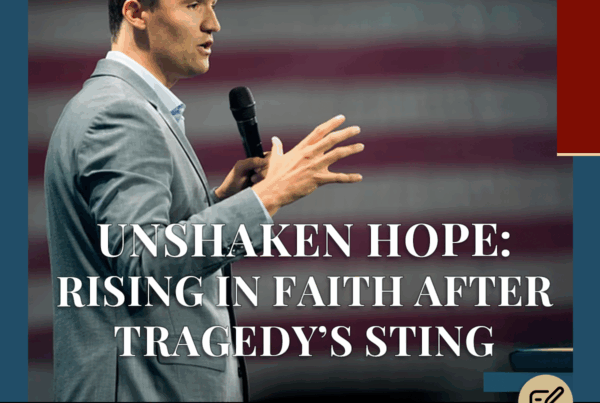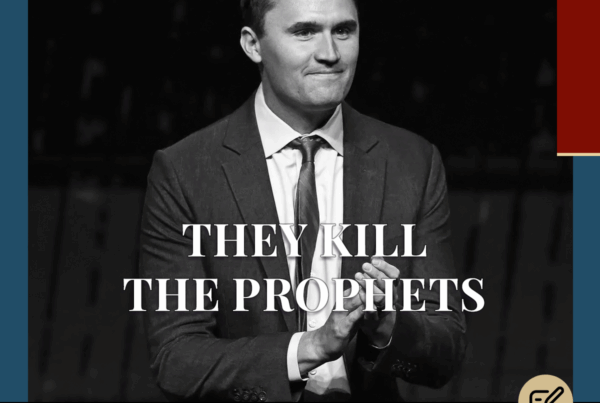Celebrating the once cancelled holiday and keeping Christ in the center.

Photo by Priscilla Du Preez on Unsplash
Hello from a winter’s day in Scotland! As I gaze out my window at 3:30 PM, I’m struck by how dark it has become. The trees stand bare, their lush green leaves gone, and the ground crunches underfoot with frost. This is winter in Scotland, where the weather often dominates conversations.
Yet, Scotland is so much more than just its climate. If you’re intrigued by captivating tales from our past, let’s delve into the rich history of Christianity in Scotland. From the early Celtic missionaries who brought the faith to these shores to the profound impact of the Reformation, Christianity is woven itself into the very fabric of Scottish identity. Though only a small percentage profess Christian faith today, God is moving by His spirit on the hills and highways.
One fascinating aspect is the history of Christmas in Scotland. Officially recognized as a holiday only in 1958, Christmas was once banned throughout the British Isles, reflecting the historical tensions between religious observance of pre and post reformation.
By the 12th century, Christmas celebrations in England featured lively Epiphany plays and nativity scenes inspired by St. Francis, highlighting the joy and wonder of Christ’s birth. However, as the Protestant Reformation gained momentum, many cherished customs faced decline. Reformers viewed several Christmas traditions as remnants of “Papist” practices, which led to their suppression. Under Oliver Cromwell in the 17th century, Christmas was condemned as a celebration of the “Rome of the Anti-Christ.” In 1643, Parliament even convened on Christmas Day, a clear indication that the holiday was not to be observed. Christmas was cancelled. The following year, December 25 was declared a day of fasting and humiliation, with town criers announcing, “No Christmas today!” In Scotland, the Parliament abolished Christmas in 1640.
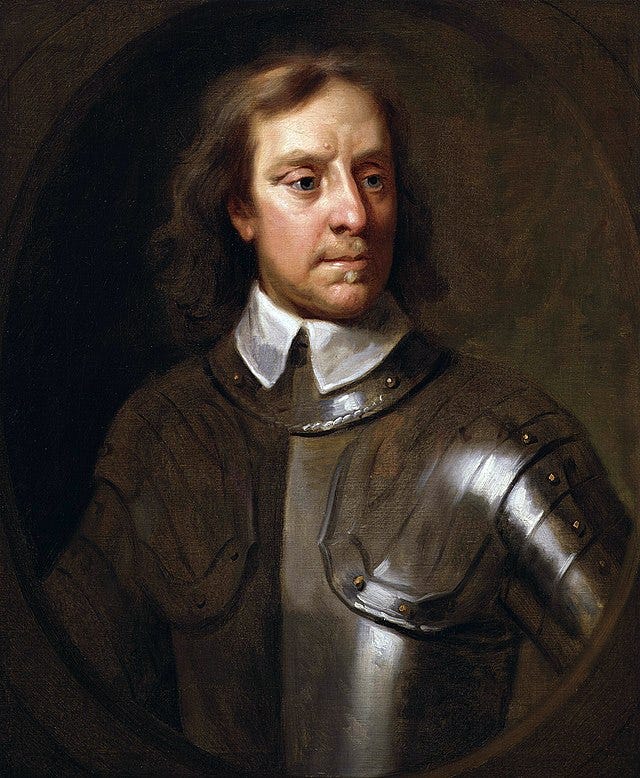
Oliver Cromwell. Public Domain.
Cromwell’s rule did not last, and Scotland and the UK returned to a a gradual resurgence of Christmas traditions. Yet, remnants of Puritanism lingered, keeping Christmas unofficial for centuries in Scotland. It wasn’t until the 19th century that the vibrant festivities we recognize today began to re-emerge. Influenced by Victorian ideals, many earlier Christmas customs were revived. Queen Victoria’s German consort, Prince Albert, introduced the Christmas tree to Britain, transforming the festive landscape.
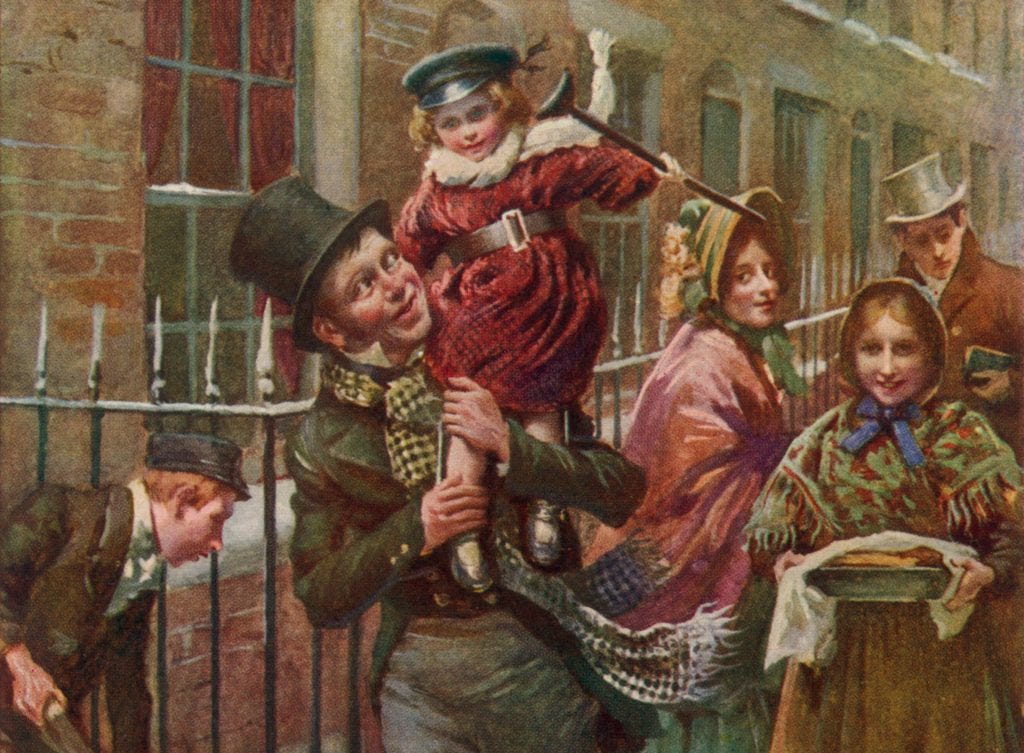
Illustration from Charles Dicken’s A Christmas Carol. Credit: https://images.immediate.co.uk/production/volatile/sites/7/2018/01/Dickensian-xmas-97864b6-e1576671936284.jpg
Additionally, Charles Dickens’ “A Christmas Carol,” published in 1843, played a pivotal role in redefining the holiday spirit. Dickens’ tale, centered on themes of redemption, generosity, and the importance of family, resonated deeply with the public, moving the essence of Christmas into contemporary settings. The message was clear: Christmas became a time for everyone, regardless of status, to enjoy the joys of gathering, giving, and celebrating together.
As we reflect on the Christmas celebration today, we find ourselves in a vastly different landscape. While the holiday remains a cherished time for family and community, the commercialism surrounding it has often overshadowed its religious significance. Supermarkets fill their shelves with advent calendars offering 25 days of chocolate, makeup, or toys. While there’s nothing inherently wrong with these items, they divert our attention from the true essence of Advent: the anticipation of Christ’s coming.
In many ways, the celebration has shifted focus from commemorating Christ’s birth to prioritizing festivities, with shopping and materialism eclipsing the profound meaning of the season. In a largely secular Britain, where many people come from non-Christian backgrounds, the revival of Christmas as a distinctly Christian observance may seem unlikely. Yet, take heart—the Spirit is stirring in hearts across the country, inviting us to rediscover the true joy and purpose of this sacred time.
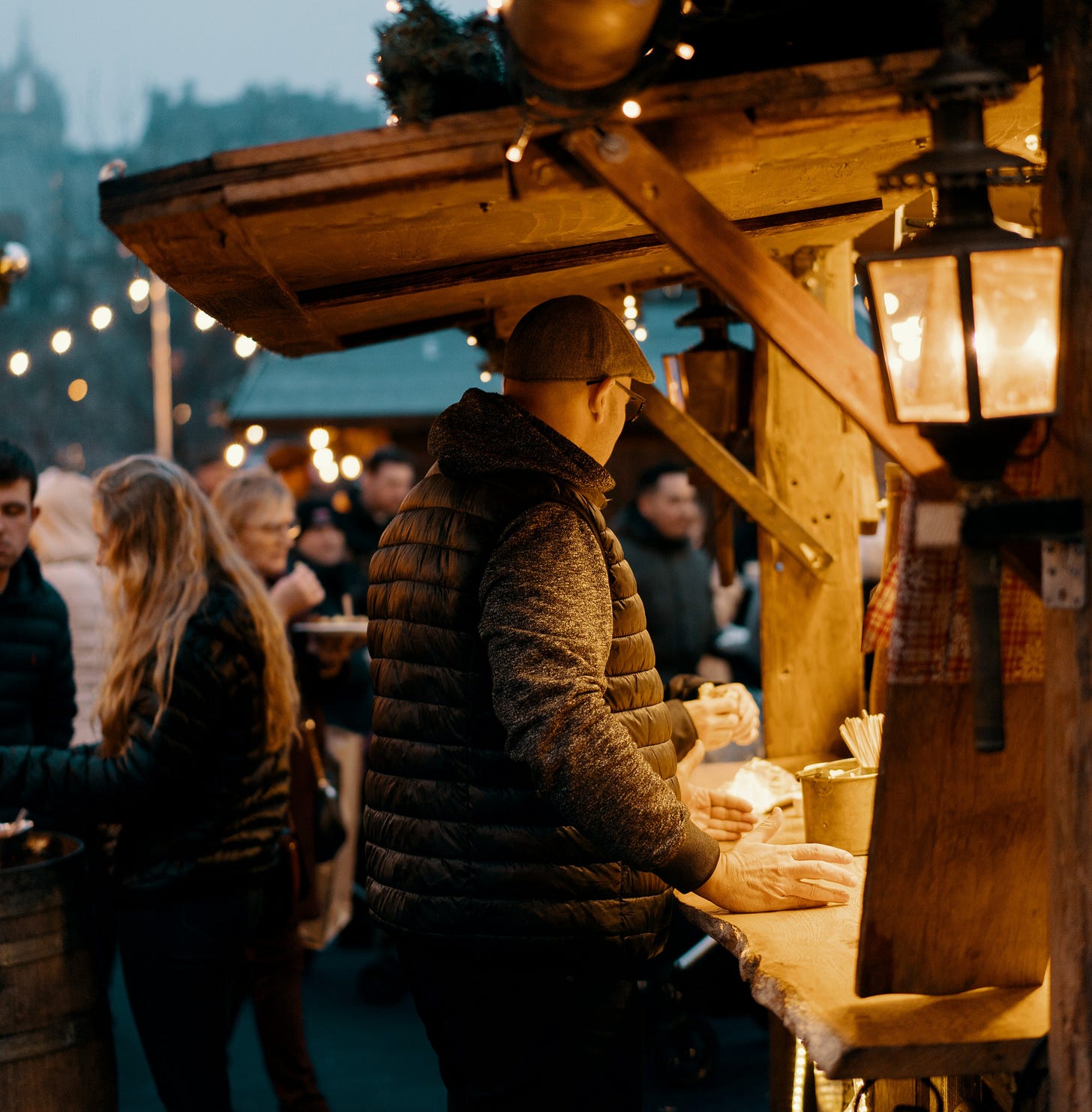
Christmas Market in Edinburgh. Photo by Ross Sneddon on Unsplash
Christmas in Scotland is still marked by cultural traditions and Christian practices that reflect a strong sense of community and shared faith. As December approaches, towns and cities are adorned with lights and decorations, creating a festive atmosphere that invites everyone to join in the celebration. Families often gather on Christmas Eve for special meals or attend church services, reinforcing the spiritual essence of the holiday.
On Christmas Day, families come together for the joy of gift-giving, often sharing meals that include traditional dishes like turkey or roast beef. Christian observances remain central to many celebrations; many attend Midnight service on Christmas Eve, where traditional hymns and readings recount the nativity story, fostering a reflective and spiritual atmosphere. Nativity plays in churches and and primary schools convey the story of Jesus’ birth, reminding attendees of the holiday’s profound significance.
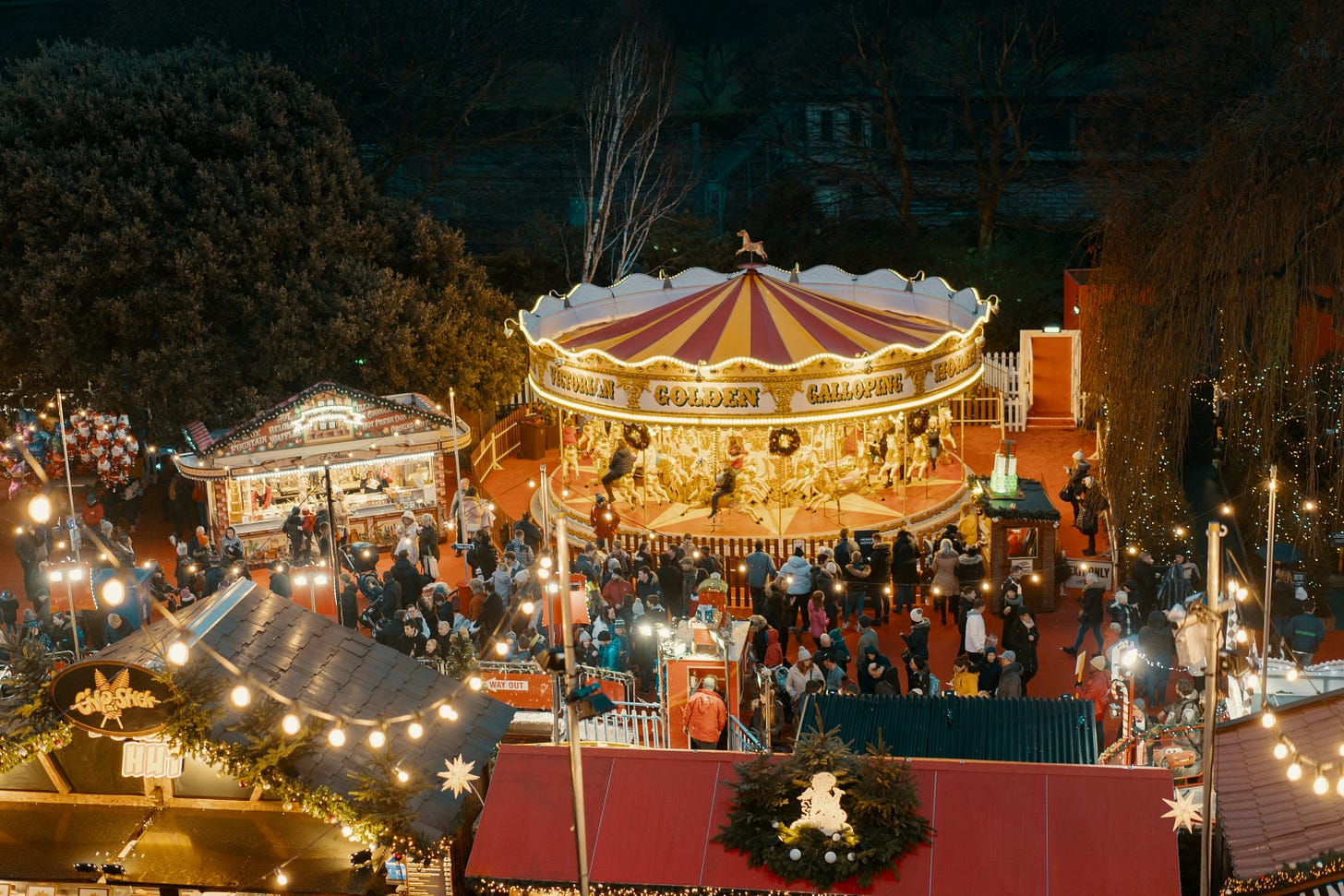
Christmas in Ediburgh. Photo by Ross Sneddon on Unsplash
The lead-up to Christmas is also marked by Advent celebrations, with congregations hosting special services and community events to prepare spiritually for the season. This emphasis on worship and reflection underscores the importance of keeping the true meaning of Christmas alive amid the distractions of modern life.
As we reflect on Christmas in Scotland today, we must consider a crucial question: In a world where many live without a vibrant faith, what should Christians do? Are we left with a secular view of Christmas as merely a holiday of gifts and food? Or do we risk returning to the days of Cromwell, when celebrations were completely banned in the name of spiritual purity?
The answer lies in our calling as Christians. Regardless of what party is in political power – we go and tell. In a world unaware of the true and living God, we must let our light shine brightly and be the salt that preserves the living reality of the Christ child born in Bethlehem. His miraculous birth fulfills ancient prophecy and should never be overshadowed by the commercialism of the season.
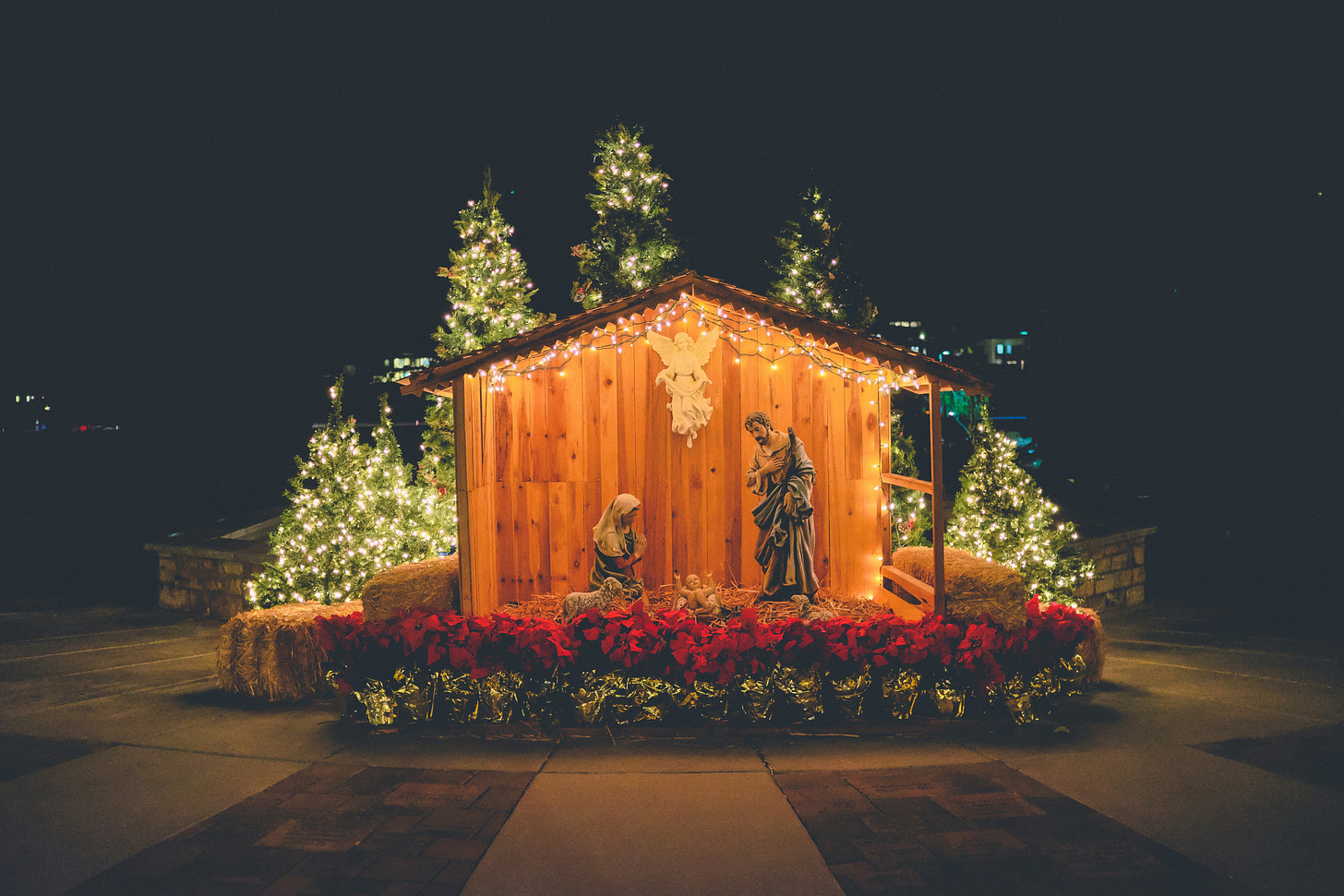
Photo by Kenny Eliason on Unsplash
Take today and share with your children and grandchildren the true story from Luke 2 and Matthew 1, sharing the deep meaning behind the nativity. Let’s read the story together (I’ve added those passages to the end of this post), celebrate the goodness of God in sending a Savior, and exchange gifts in remembrance of the offerings brought by the wise men to the Christ child. Displaying a tree full of lights in our homes symbolizes bringing light into the darkness of winter, a powerful reminder of the hope that Jesus brings.
Let us sing songs of the real Christmas and faith, allowing the joy of the true meaning of Christmas to shine through us. While the world may miss the mark, we know Him! Let us go and tell it on the mountains AND in the malls that Jesus Christ is born. Have your church choir sing carols in the stores, supermarkets, nursing and care homeschool, even door to door, This is our mission—a mission we can embrace with joy and conviction. As we navigate the challenges of modern life, we are the called ones who ring out truth of Christ’s love and light in our lives. Together, we can make this season truly meaningful, honoring our heritage while sharing the true message of Christmas with the world.
As we celebrate the joy and wonder of Christmas, how do you ensure that Christ remains at the center of your holiday traditions? What are some ways you and your family share the true message of Christmas with your community? Whether it’s through storytelling, singing carols, or acts of kindness, we’d love to hear how you bring the light of Christ into this festive season. Share your thoughts and ideas with us, and let’s inspire one another to keep the spirit of Christmas alive!
Or send me an email directly.
Matthew 1:18-25 (NIV)
18 This is how the birth of Jesus the Messiah came about: His mother Mary was pledged to be married to Joseph, but before they came together, she was found to be pregnant through the Holy Spirit. 19 Because Joseph her husband was faithful to the law, and yet did not want to expose her to public disgrace, he had in mind to divorce her quietly.
20 But after he had considered this, an angel of the Lord appeared to him in a dream and said, “Joseph son of David, do not be afraid to take Mary home as your wife, because what is conceived in her is from the Holy Spirit. 21 She will give birth to a son, and you are to give him the name Jesus, because he will save his people from their sins.”
22 All this took place to fulfill what the Lord had said through the prophet: 23 “The virgin will conceive and give birth to a son, and they will call him Immanuel” (which means “God with us”).
24 When Joseph woke up, he did what the angel of the Lord had commanded him and took Mary home as his wife. 25 But he did not consummate their marriage until she gave birth to a son. And he gave him the name Jesus.
Luke 2:1-20 (NIV)
The Birth of Jesus
In those days Caesar Augustus issued a decree that a census should be taken of the entire Roman world. 2 (This was the first census that took place while Quirinius was governor of Syria.) 3 And everyone went to their own town to register.
4 So Joseph also went up from the town of Nazareth in Galilee to Judea, to Bethlehem the town of David, because he belonged to the house and line of David. 5 He went there to register with Mary, who was pledged to be married to him and was expecting a child. 6 While they were there, the time came for the baby to be born, 7 and she gave birth to her firstborn, a son. She wrapped him in cloths and placed him in a manger, because there was no guest room available for them.
8 And there were shepherds living out in the fields nearby, keeping watch over their flocks at night. 9 An angel of the Lord appeared to them, and the glory of the Lord shone around them, and they were terrified. 10 But the angel said to them, “Do not be afraid. I bring you good news that will cause great joy for all the people. 11 Today in the town of David a Savior has been born to you; he is the Messiah, the Lord. 12 This will be a sign to you: You will find a baby wrapped in cloths and lying in a manger.”
13 Suddenly a great company of the heavenly host appeared with the angel, praising God and saying,
14 “Glory to God in the highest heaven,
and on earth peace to those on whom his favor rests.”
15 When the angels had left them and gone into heaven, the shepherds said to one another, “Let’s go to Bethlehem and see this thing that has happened, which the Lord has told us about.”
16 So they hurried off and found Mary and Joseph, and the baby, who was lying in the manger. 17 When they had seen him, they spread the word concerning what had been told them about this child, 18 and all who heard it were amazed at what the shepherds said to them. 19 But Mary treasured up all these things and pondered them in her heart. 20 The shepherds returned, glorifying and praising God for all the things they had heard and seen, which were just as they had been told.

